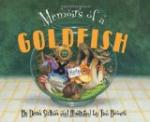He believes in abstract principles of virtue and would die for them; he recognizes duties and will struggle along, until he is a worn-out, penniless old man, to perform them. He goes out searching for those who need help and takes a chance on their not being deserving. Many a poor chap has died miserably because some rich man has judged that he was not deserving of help. I forget what Lazarus did about the thirsty gentleman in Hades—probably he did not regard him as deserving either.
With most of us a charitable impulse is like the wave made by a stone thrown into a pool—it gets fainter and fainter the farther it has to go. Generally it does not go the length of a city block. It is not enough that there is a starving cripple across the way—he must be on your own doorstep to rouse any interest. When we invest any of our money in charity we want twenty per cent interest, and we want it quarterly. We also wish to have a list of the stockholders made public. A man who habitually smokes two thirty-cent cigars after dinner will drop a quarter into the plate on Sunday and think he is a good Samaritan.
The truth of the matter is that whatever instinct leads us to contribute toward the alleviation of the obvious miseries of the poor should compel us to go further and prevent those miseries—or as many of them as we can—from ever arising at all.
So far as I am concerned, the division of goodness into seven or more specific virtues is purely arbitrary. Virtue is generic. A man is either generous or mean—unselfish or selfish. The unselfish man is the one who is willing to inconvenience or embarrass himself, or to deprive himself of some pleasure or profit for the benefit of others, either now or hereafter.
By the same token, now that I have given thought to the matter, I confess that I am a selfish man—at bottom. Whatever generosity I possess is surface generosity. It would not stand the acid test of self-interest for a moment. I am generous where it is worth my while—that is all; but, like everybody else in my class, I have no generosity so far as my social and business life is concerned. I am willing to inconvenience myself somewhat in my intimate relations with my family or friends, because they are really a part of me—and, anyway, not to do so would result, one way or another, in even greater inconvenience to me.
Once outside my own house, however, I am out for myself and nobody else, however much I may protest that I have all the civic virtues and deceive the public into thinking I have. What would become of me if I did not look out for my own interests in the same way my associates look out for theirs? I should be lost in the shuffle. The Christian virtues may be proclaimed from every pulpit and the Banner of the Cross fly from every housetop; but in business it is the law of evolution and not the Sermon on the Mount that controls.
The rules of the big game are the same as those of the Roman amphitheater. There is not even a pretense that the same code of morals can obtain among corporations and nations as among private individuals. Then why blame the individuals? It is just a question of dog eat dog. We are all after the bone.




